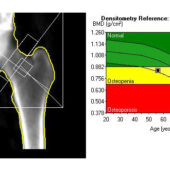When writing goes to war
 English professor Sharon Raynor’s students sift through acid-free folders looking at letters that soldiers sent home during the Civil War and World War I and II. Pulling out folders. Reading the words. It’s an experience unlike looking at a digitized copy.
English professor Sharon Raynor’s students sift through acid-free folders looking at letters that soldiers sent home during the Civil War and World War I and II. Pulling out folders. Reading the words. It’s an experience unlike looking at a digitized copy.
 A battle for evolutionary dominance is raging in Arizona between the tiger moth and the echo-locating bat. New research being done by Wake Forest shows the tiger moth currently has the upper hand.
A battle for evolutionary dominance is raging in Arizona between the tiger moth and the echo-locating bat. New research being done by Wake Forest shows the tiger moth currently has the upper hand.  From discovering how text messages can help build empathy to figuring out how character and personality affect ethical behavior on the job, the Character Project has led to remarkable advances in the study of human nature, values, morals and decision-making. The next step? Sharing what scholars have learned about character with the public.
From discovering how text messages can help build empathy to figuring out how character and personality affect ethical behavior on the job, the Character Project has led to remarkable advances in the study of human nature, values, morals and decision-making. The next step? Sharing what scholars have learned about character with the public. To celebrate Wake Forest’s ranking 11th in U.S. News and World Report for commitment to undergraduate teaching, Volunteer Service Corps (VSC) partnered with the Office of the Dean of the College to launch the “11 Days of Teaching Appreciation” social media campaign.
To celebrate Wake Forest’s ranking 11th in U.S. News and World Report for commitment to undergraduate teaching, Volunteer Service Corps (VSC) partnered with the Office of the Dean of the College to launch the “11 Days of Teaching Appreciation” social media campaign. A new kind of hands-free communication device developed by Wake Forest could help people with speech impediments and poor motor control interact with the world around them.
A new kind of hands-free communication device developed by Wake Forest could help people with speech impediments and poor motor control interact with the world around them.  Wake Forest researchers recently developed a sugar-based compound that makes it cheaper and easier to turn low-quality fats and oils into affordable biodiesel.
Wake Forest researchers recently developed a sugar-based compound that makes it cheaper and easier to turn low-quality fats and oils into affordable biodiesel. When Maggie Gigler began her academic journey at Wake Forest, she knew she wanted to major in psychology and go on to earn a doctorate in clinical psychology. With her study on borderline personality disorder, she was one of 127 students presenting at Undergraduate Research Day.
When Maggie Gigler began her academic journey at Wake Forest, she knew she wanted to major in psychology and go on to earn a doctorate in clinical psychology. With her study on borderline personality disorder, she was one of 127 students presenting at Undergraduate Research Day. A first-of-a-kind study by Wake Forest researchers will address why long distance runners, particularly women, are more likely than athletes in other sports to develop osteoporosis later in life.
A first-of-a-kind study by Wake Forest researchers will address why long distance runners, particularly women, are more likely than athletes in other sports to develop osteoporosis later in life. Intensive dieting and an hour of exercise three times a week can lead to significantly less knee pain and improved function after 18 months for individuals suffering from debilitating and painful knee osteoarthritis, according to research by professor Stephen Messier and his WFU colleagues.
Intensive dieting and an hour of exercise three times a week can lead to significantly less knee pain and improved function after 18 months for individuals suffering from debilitating and painful knee osteoarthritis, according to research by professor Stephen Messier and his WFU colleagues. Peripheral artery disease is a debilitating affliction that can make walking painful. A new, low-cost approach to treating the disease, stemming from research at Wake Forest, could lead to happier and healthier lives for millions of Americans.
Peripheral artery disease is a debilitating affliction that can make walking painful. A new, low-cost approach to treating the disease, stemming from research at Wake Forest, could lead to happier and healthier lives for millions of Americans.